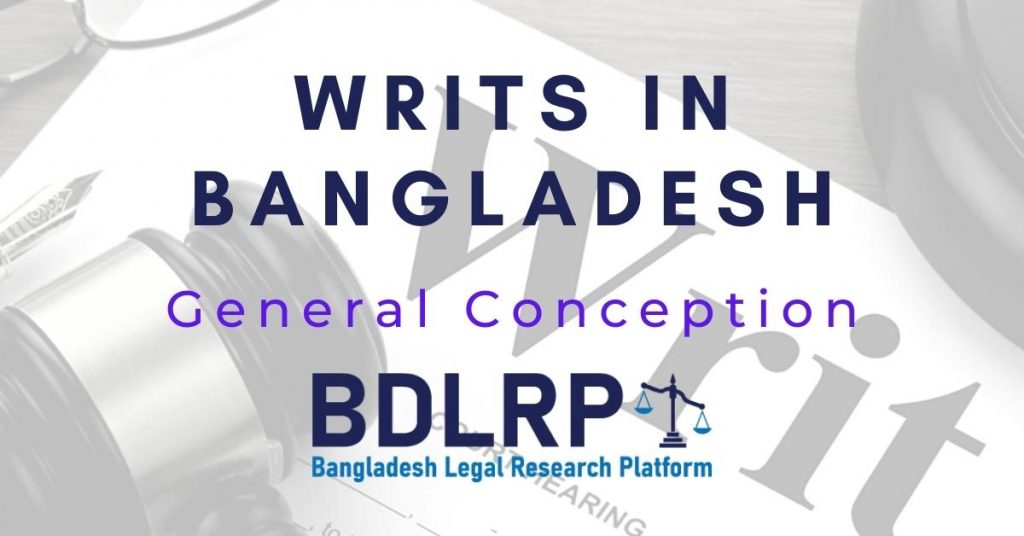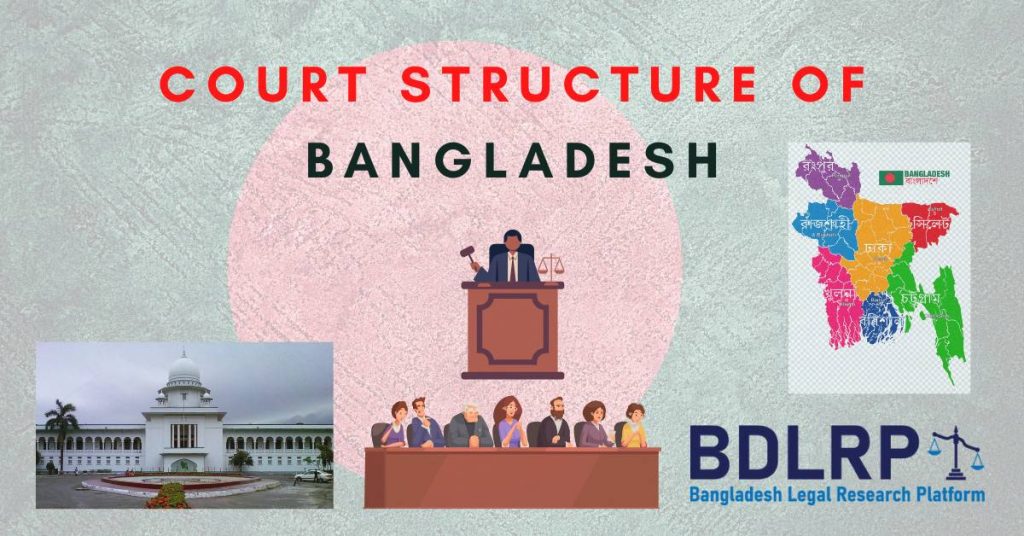Introduction:
Writ is a type of legal right through which if the right of a person or organization are violated the said person or organization can seek remedy from the court to important their violated rights. The process through which this remedy is sought is called writ. Writ is one of the success names of human society in protecting rights. The word writ means ‘written documents
Types of writ:
According to Article 102 of the constitution of Bangladesh. There are five types of writ. They are:-
- Writ of Prohibition.
- Writ of Mandamus.
- Writ of Certiorari.
- Writ of Habeas Corpus.
- Writ of Quo-warranto.
Who can do writ:
Basically two types of persons or organizations can writ.
First any aggrieved person or institution whose right are violated has been three types of writs can be filed by an aggrieved person. They are:-
• Prohibition.
• Mandamus.
• Certiorari.
Secondly, any citizen of the state, two types of writ can be done by any citizen of the state. They are:-
• Habeas Corpus.
• Quo-warranto.
Types of writ explained:
Writ of Prohibition:
Prohibition means ‘prohibit’ which is a preventive writ. Article 102 (2) (a) (i) of the constitution of Bangladesh mentions writ of prohibition in the first part. It is stated that ‘ on the application of any aggrieved person, he shall order any person exercising any duty connected with the affairs of the republic or any local authority to prevent him form doing any act not authorized by law’.
That is, if the subordinate court, institution, any authority or person wants to do any work outside the responsibility assigned to him, then the writ that can be done against him is the writ of prohibition.
- Prohibition Writ Case Reference: M.Wali Ahmed Chowdhury Vs. Mahfuzul Haq Chowdhury.
Decision: the issue of writ Prohibition is discretionary and care must be taken to state in proper
manner and the precise writ asked for.
Writ of Mandamus:
Mandamus means ‘command’. Article 102 (2) (a) (i) of the constitution of Bangladesh provides
for writ of mandate. The said paragraph states that “on the application of any aggrieved person, the republic or any local authority shall direct any person exercising any duty related to the affairs of the state to perform his duties by law”.
That is, if the subordinate court, institution, any authority, person refugees to fulfil the responsibility assigned to him or does not want to do it or delays to do it, then the writ that can be done against the said person or institution is the writ of Mandamus.
- Mandamus Writ Case reference: Zamiruddin Ahmed Vs. Govt of Bangladesh, 1 BLD (HED) 304.
Decision: when there are special circumstances to indicate that demand for Justice would be futile, mandumus can issue even through no demand for justice was made prior to filing of the writ petition.
Writ of Certiorari:
The term certiorari means ‘ to be certified or to be more fully informed of’. Writ of certiorari is the writ of certiorari that can be filed against any subordinate court any authority, any person or institutions if they do any work that is not assigned to them i.e. if any work is done in violation of the legal power. Article 102(2) (a) (ii) of the constitution of Bangladesh provides for this writ.
- Certiorari Writ Case Reference: Saudhanghu Bhuson Das Vs. Major Hasan Reza, (1959) 11 DLR 117.
Decision: power of the high court in issuing the writ of certiorari cannot be invoked to amend a convection nor to order the case to go back for imposing lawful sentence.
Writ of Habeas Corpus:
The word habeas “corpus” is a Latin term which means “ have his body”. Article 102 (2) (b) (i) of the constitution of Bangladesh provides for this writ. If a person is detained by the government or any other person or institution, anyone can file this writ on behalf of the aggrieved person. By this writ, the court directs the detainer to produce the arrested person in.
- Habeas Corpus Writ Case Reference: Sajeda Parvin Vs. Government of Bangladesh, 40 DLR(AD) 178.
Decision: The fact of detention and not the date of order of the detention is the material point.
Writ of Quo-warranto:
Quo-warranto literary means “ what is your authority”. A writ of quo warranto can be issued if a person claims or illegally occupies a position he is not qualified to hold, as per Article 102 (2) (b) (i) of the constitution. The provision of this Act are contained in para.
- Quo-warranto Writ Case Reference: Abu Bakr Siddiqui VS. Mr. Justice Shahabuddin, 49 DLR.
Decision: the person asked to show cause as to his entitlement to the office must be in actual
possession of the office.
Author: Afsana Afrin
Department of Law and Land Administration,
Patuakhali Science and Technology University (PSTU).





Comments are closed.